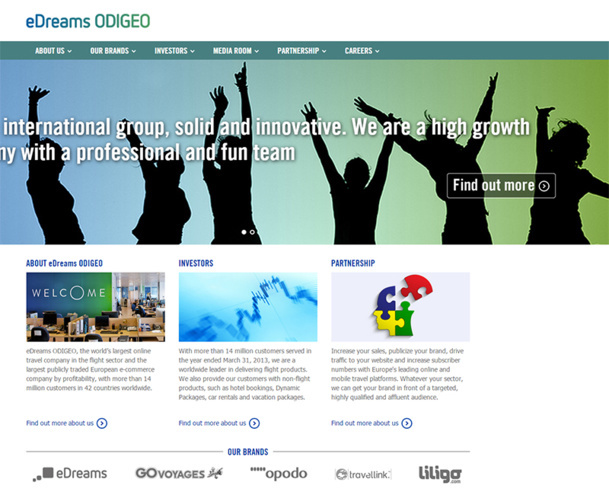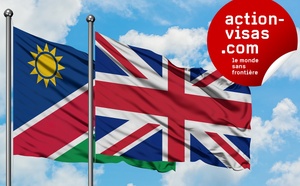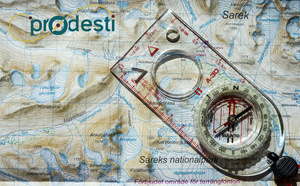
The real question doesn’t concern respecting the rules but it’s about the commercial negotiations that Iberia and BA have with eDreams - DR: Screen Shot
The incident only lasted one day.
According to British Airways (BA) and Iberia, the situation has been resolved because the reservation agencies in question have modified their websites to be in line with European regulations.
“The total price of the ticket (…) is (as of now) visible from the start of the reservation process,” they communicated.
Yet, when looking at the European regulation, the situation is not that clear.
What does it look like on the judicial level? Two laws on price transparency should be highlighted:
- The European regulation dating from September 24th, 1008/2008 chapter IV “Tariff Provisions,” requires retailers of air travel to inform the client on the break-down of the ticket price, meaning the passenger rate, taxes, consumer fees, and any additional fees.
- The European regulation on distance selling, adapted to the Hamon law since March 17th, 2014, reinforces the obligation of informing the client during an online transaction.
“The law highlights three time frames on informing the consumer: “before placing the order” on the essential characteristics of the product, including the price; “during the order” on the explicit recognition of payment requirements; and finally “at the latest, during the beginning of the order processing” with information concerning the means of payment. (Editor’s note: French Consumer Code L.121-19-3.)
I have a hard time seeing where the obligation of providing the total ticket price right at the start of the order comes from,” questions Emmanuelle Llop, lawyer for the Court and founder of Equinoxe Avocats.
According to British Airways (BA) and Iberia, the situation has been resolved because the reservation agencies in question have modified their websites to be in line with European regulations.
“The total price of the ticket (…) is (as of now) visible from the start of the reservation process,” they communicated.
Yet, when looking at the European regulation, the situation is not that clear.
What does it look like on the judicial level? Two laws on price transparency should be highlighted:
- The European regulation dating from September 24th, 1008/2008 chapter IV “Tariff Provisions,” requires retailers of air travel to inform the client on the break-down of the ticket price, meaning the passenger rate, taxes, consumer fees, and any additional fees.
- The European regulation on distance selling, adapted to the Hamon law since March 17th, 2014, reinforces the obligation of informing the client during an online transaction.
“The law highlights three time frames on informing the consumer: “before placing the order” on the essential characteristics of the product, including the price; “during the order” on the explicit recognition of payment requirements; and finally “at the latest, during the beginning of the order processing” with information concerning the means of payment. (Editor’s note: French Consumer Code L.121-19-3.)
I have a hard time seeing where the obligation of providing the total ticket price right at the start of the order comes from,” questions Emmanuelle Llop, lawyer for the Court and founder of Equinoxe Avocats.
A cache system
All the more, technically, the total price of a ticket cannot be delivered “at the beginning of the reservation process.” In fact, major constraints limit airline ticket distributors on that point.
“It is impossible to have the exact price at a given moment. We have to wait for the internet user to finalize his search information - number of passengers, additional purchases, age, rate per segment… — to provide him with a definitive price.
We work with a cache system, that is refreshed every two hours,” explains Vincent Luna, France’s CEO of vol24.fr.
“The cache, breaks down Emmanuelle Llop, is a database that groups all the offers created after completed requests, only the effective reservations are stored. It is impossible to stock all requests.
There are technical constraints that need to be taken into account. Every day, these websites process millions of data to respond to millions of requests.”
So, is the expectation, from the two companies, of requiring pricing details to be published right at the start of the order unreasonable?
It seems like a strange demand especially if we take into account the fact that airline companies are imposed the same pricing update requirements.
According to the lawyer, “this isn’t the right debate.”
“It is impossible to have the exact price at a given moment. We have to wait for the internet user to finalize his search information - number of passengers, additional purchases, age, rate per segment… — to provide him with a definitive price.
We work with a cache system, that is refreshed every two hours,” explains Vincent Luna, France’s CEO of vol24.fr.
“The cache, breaks down Emmanuelle Llop, is a database that groups all the offers created after completed requests, only the effective reservations are stored. It is impossible to stock all requests.
There are technical constraints that need to be taken into account. Every day, these websites process millions of data to respond to millions of requests.”
So, is the expectation, from the two companies, of requiring pricing details to be published right at the start of the order unreasonable?
It seems like a strange demand especially if we take into account the fact that airline companies are imposed the same pricing update requirements.
According to the lawyer, “this isn’t the right debate.”
Is the issue somewhere else?
Shouldn’t this “transparency” motive be confined to consumer organizations or municipal delegations for population’s protection (DDPP) associated to the DGCCRF?
Why are airline companies sticking their nose where it doesn't belong?
Especially since, according to Vincent Luna, “this problem is not recent, it’s an old quarrel between companies and online agencies. I’d even say that there's nothing novel about it.”
The travel agency affirms that Iberia and BA want to impose new distribution policies to agencies within the IATA, a decision that eDreams is fighting by appealing through competition authorities in various jurisdictions.
Which is a more plausible explanation in this sector where profits remain low and everyone tries to keep his share of the cake.
Yet, can a company “impose” a fee to one of its distributors?
No. Since 1986, the principle of free trade and industry reestablished the principle around freedom of pricing, a shifting ground for transporters.
It prohibits from imposing a price, except for the case of said exclusive or selective distribution (in the high-end sector for instance.)
"And in any case, the freedom belongs to the client", presses a spokesperson at Bravofly.
“Bravofly Rumbo Groupe strongly believes in the collaboration between travel agencies and airline companies as much as a fair marketplace where clients have freedom of choice.”
Why are airline companies sticking their nose where it doesn't belong?
Especially since, according to Vincent Luna, “this problem is not recent, it’s an old quarrel between companies and online agencies. I’d even say that there's nothing novel about it.”
The travel agency affirms that Iberia and BA want to impose new distribution policies to agencies within the IATA, a decision that eDreams is fighting by appealing through competition authorities in various jurisdictions.
Which is a more plausible explanation in this sector where profits remain low and everyone tries to keep his share of the cake.
Yet, can a company “impose” a fee to one of its distributors?
No. Since 1986, the principle of free trade and industry reestablished the principle around freedom of pricing, a shifting ground for transporters.
It prohibits from imposing a price, except for the case of said exclusive or selective distribution (in the high-end sector for instance.)
"And in any case, the freedom belongs to the client", presses a spokesperson at Bravofly.
“Bravofly Rumbo Groupe strongly believes in the collaboration between travel agencies and airline companies as much as a fair marketplace where clients have freedom of choice.”
So, are we confronted to an issue in terms of profits?
Is the problem more about the companies’ profit?
Let’s hypothesize, since we were unable to reach the concerned airline companies.
Let’s pretend that since airline companies play the transparency card on their website, they are then unhappy to note that prices differ on the websites of online agencies.
This can give them the feeling of not mastering their prices (linked to processing fees.) Fearing that consumers won’t understand these fluctuations, they want to avoid higher bidding.
However, processing fees are, as of today, the only profits acquired by online reservation agencies since airline companies do not pay on commission anymore.
How, then, can we blame them for paying themselves?
Especially since airline companies depend on this retail channel.
“Our expertise as online agencies is mastering a marketing budget. Our goal is to generate trafic, qualify, and monetize it, explains Vincent Luna.
We don’t have the same business model as the companies but we share one concern, having a positive balance sheet.
The companies don’t realize that we invest a lot in Google, that we have marketing expenses. It’s possible that the commission we take, they would lose it in larger amounts if they had to invest as much in Google and metasearches.
In the end, our commissions are not astronomical, we’re talking about a few percentage points.”
Fabrice Dariot, Director of Bourse de Vols, also shares his opinion.
“In reality, wouldn’t it be preferable for airline companies, that are both providers and competitors of travel agencies, to let the DGCCRF do its job as a regulator on the public display of pricing?
No one can be judge and a party of the same cause.
But it is surprising to see some companies take a moralizing posture, especially when they suggest online travel agencies, with insistance, to hide from the client the existence of round-trip tickets, that are three times cheaper than one-way tickets. Isn’t it?
Let’s count on the DGCCRF on the French territory to do its job…and competition in the sky will be fair."
“This event, representative of our times, brings forth our daily challenge, and brings to light diverging interests that should be resolved through dialogue,” insists Vincent Luna.
Let’s hypothesize, since we were unable to reach the concerned airline companies.
Let’s pretend that since airline companies play the transparency card on their website, they are then unhappy to note that prices differ on the websites of online agencies.
This can give them the feeling of not mastering their prices (linked to processing fees.) Fearing that consumers won’t understand these fluctuations, they want to avoid higher bidding.
However, processing fees are, as of today, the only profits acquired by online reservation agencies since airline companies do not pay on commission anymore.
How, then, can we blame them for paying themselves?
Especially since airline companies depend on this retail channel.
“Our expertise as online agencies is mastering a marketing budget. Our goal is to generate trafic, qualify, and monetize it, explains Vincent Luna.
We don’t have the same business model as the companies but we share one concern, having a positive balance sheet.
The companies don’t realize that we invest a lot in Google, that we have marketing expenses. It’s possible that the commission we take, they would lose it in larger amounts if they had to invest as much in Google and metasearches.
In the end, our commissions are not astronomical, we’re talking about a few percentage points.”
Fabrice Dariot, Director of Bourse de Vols, also shares his opinion.
“In reality, wouldn’t it be preferable for airline companies, that are both providers and competitors of travel agencies, to let the DGCCRF do its job as a regulator on the public display of pricing?
No one can be judge and a party of the same cause.
But it is surprising to see some companies take a moralizing posture, especially when they suggest online travel agencies, with insistance, to hide from the client the existence of round-trip tickets, that are three times cheaper than one-way tickets. Isn’t it?
Let’s count on the DGCCRF on the French territory to do its job…and competition in the sky will be fair."
“This event, representative of our times, brings forth our daily challenge, and brings to light diverging interests that should be resolved through dialogue,” insists Vincent Luna.


























![Musées et santé : l'essor de la muséothérapie [ABO] Musées et santé : l'essor de la muséothérapie [ABO]](https://www.tourmag.com/photo/art/large_16_9/93945726-65568018.jpg?v=1769613161)















